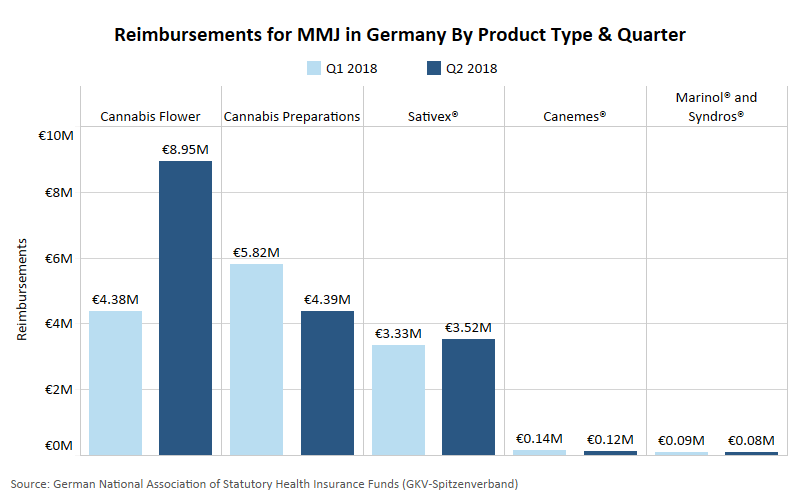With the gradual progression of marijuana from illegal to legal – and an influx of top executives from the clean-cut sectors of investing and pharma – executive compensation at Canadian cannabis companies is slowly aligning itself with other sectors.
There’s a sense of stability guiding what cannabis firms will pay, according to industry experts.
“You have this transition taking place now,” said Josephine Deslauriers, a vice president at WeedMD. “We’re (becoming) an actual industry.”
The past year has seen an influx of many high-profile CEOs, including the entrance of Daniel O’Neill, former chief executive of Molson Coors, joining CannaRoyalty; George Skorsis, former president of Mettrum and Red Bull, joining Liberty Health Sciences; and Torsten Kuenzlen, a former executive for The Coca-Cola Co. and Molson Coors, heading to Sundial Growers.
Now that many of the larger licensed producers (LPs) have human resources departments and hiring strategies, the employees hired when the cannabis firms were in startup mode are making way for more seasoned players from the alcohol, food, pharma, investing and mining sectors, according to Deslauriers.
“The people who held executive roles historically were entrepreneurs or founders or initial investors,” she said. But roles are becoming more specialized, requiring specific skills such as HR, marketing and compliance.
The stigma of cannabis is also easing, meaning more outsiders are willing to consider roles in the nascent industry.
And there’s more money available to businesses.
Canadian cannabis companies raised about 150 million Canadian dollars ($115 million) in capital in the first half of 2017. That rose to CA$2.5 billion in the first half of 2018.
Many boards realize they need top executive talent to continue their growth, and they’re willing to pay for it.
Compensation for executives and master growers is now more on par with other industries – and sometimes up to 25% more, according to Deslauriers.
Because many cannabis operations are in less centralized locations – making them less attractive to executives used to working in large cities such as Toronto or Vancouver – these roles can garner a premium.
There’s also a lack of clarity in the industry pre-legalization, which means that only bold, risk-taking executives are jumping into a space that could see much consolidation – and potential future layoffs.
Alison McMahon, CEO of Cannabis At Work in Edmonton, Alberta, said that whether a premium is offered comes down to size.
“It’s still a startup-style industry” among smaller firms, she said, but larger organizations are showing a maturity in their offerings. “The premium is starting to level off.”
Stock options included
A Marijuana Business Daily analysis of public documents showed that Aurora Cannabis offers the highest total executive compensation package, reaching CA$2.4 million – a figure that includes salary, options and incentives. Aphria was close behind at CA$2.3 million, while CannaRoyalty spent CA$1.1 million.
The average total compensation of the top 30 firms cannabis firms in Canada was CA$652,767.
“It is common for executives in the Canadian cannabis industry to see a compensation package consisting of a base salary, health benefits, a short-term incentive plan (usually in the form of an annual performance-based bonus), as well as a long-term incentive plan (usually in the form of stock options),” said Jason Fleming, vice president of HR at MedReleaf in Toronto.
Compensation packages for senior-level executives usually include a variable incentive rooted in performance, as well, which can be up to 50% or higher, Deslauriers said.
The reason is the need for buy-in.
“Owners of these LPs want to grow organizations with people that are financially invested,” said Jennifer Koh, manager of recruitment services for Toronto-based Cannabis Compliance.
They also want these executives to stay around for the long term.
So, enticements may include a share-ownership structure or an option upon signing with vesting periods of 2-3 years.
“That’s the carrot,” Deslauriers said. “I think the share ownership is more pronounced in this space. There’s a lot of concern around job security.”
“Ten out of 15 (companies surveyed for Cannabis At Work’s 2018 report) paid in equity,” McMahon said.
What the future holds
The coming year will see a need for more talent as the industry begins to stabilize after legalization.
“The C-suite continues to be growing and competitive,” Koh said, adding that compensation will likely be in line with other sectors.
McMahon believes that’s a reflection of an industry that is mature and well-capitalized.
“With larger firms, we definitely see very robust total compensation packages,” she said.
Positions, such as master grower, will also move into a more senior executive level. At the moment, this position typically commands an average annual salary of CA$80,000, according to Cannabis At Work.
“It’s one of the hottest jobs right now,” Koh said, largely because of the position’s movement out of the black market. “There is a shortage of skilled workers.”





